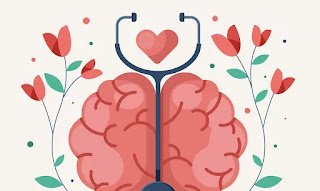Digital AI Operations: Could Healthcare Benefit?
This week I watched this video on WSJ: https://www.wsj.com/video/series/travel-guides/how-ai-is-transforming-air-traffic-control-towers/1E2C984E-F047-47F7-B1AB-1F7D1104F9E1?mod=Searchresults_pos15&page=1
The video shows how digital AI traffic control towers are changing operations at Heathrow Airport in London. The system is powered by algorithms that identifies plans and then overlay satellite information, and can function in clouds or even "see through" buildings, improvements over human air traffic control skills.
This made me think about what other operations could be improved and made more efficient using AI. I work in healthcare, and one area of inefficiency is the process of consulting specialists for a patient. Currently, it works like this:
- The patient's primary team identifies a problem that they don't have the knowledge or skills to address (a mental health need, an infection, etc.)
- The primary team identifies the best specialist service to consult
- Someone on the primary team places the consult and sends out a page
- The specialist team receives the page and calls back the primary service to discuss the patient's need
- The specialist visits the patient
- The specialist communicates a plan and recommendations back to the primary team, often by writing a note in the electronic health record and/or by sending a message or page again
The issue with this process is that there are many points of failure. For instance, the primary team may not correctly identify the need for a specialist. This is a problem in mental health, where physicians are notorious for either over-estimating or under-estimating a patient's need for mental health support. The other issue is that the primary team must value the specialist's service and recognize their own limitations, which can be difficult for some physicians. Operationally there are failure points as well. For instance what if the primary team doesn't pick up the phone when the specialist calls back the page? And what if the primary team is so busy they don't read the recommendations in the note carefully?
All this made me wonder whether AI could improve this process operationally. For instance, an algorithm could trawl the medical record, looking for pre-identified triggers to consult a specialist. This could be something like elevated white blood counts, fever, or wounds. For mental health it could look for a history of psychiatric admissions, a current depression score on a depression measure, or look for words in the notes like "tearful" or "crying". Then, the AI could add that patient to the specialty team's patient list to evaluate.
Another benefit is that this would reduce workload for teams. Because they would not have to engage in the administrative process of identifying the problem, deciding to place a consult and physically entering the consult order in the computer, the specialist could get to the patient faster.
My hope is that as hospital operations catch up with the rest of the business operations in the US, healthcare systems will consider ways to reduce burden on physicians by using AI. Not only would this benefit the system, but may even improve staff turnover and satisfaction.




Comments
Post a Comment